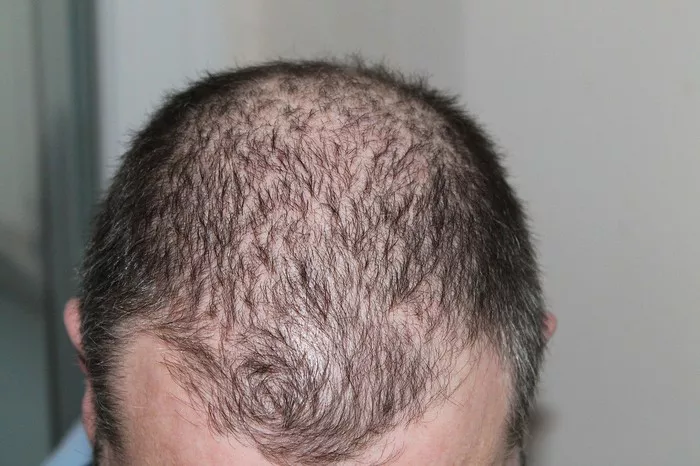Hair loss is a complex and multifaceted issue that can be influenced by various factors, both internal and external. While genetics, hormonal changes, and medical conditions are well-known contributors, the impact of psychological factors, particularly traumatic events, on hair health is a topic that deserves exploration. In this article, we will delve into the question: Can a traumatic event cause hair loss?
Understanding the Hair Growth Cycle
Before we address the potential link between traumatic events and hair loss, it’s essential to comprehend the basics of the hair growth cycle. The human hair growth cycle consists of three phases: anagen (growth phase), catagen (transitional phase), and telogen (resting phase). Various factors, including stress and trauma, can disrupt this cycle, leading to an increased shedding of hair.
The Stress-Hair Loss Connection
Here’s how stress is related to hair loss:
1. Telogen Effluvium:
Telogen effluvium is a type of hair loss characterized by a sudden and significant shedding of hair. This condition is often linked to stress, whether physical or emotional. Traumatic events can trigger a large number of hair follicles to enter the telogen (resting) phase simultaneously, leading to increased hair shedding.
2. Trichotillomania:
Trichotillomania is a psychological disorder where individuals compulsively pull out their own hair. While not directly caused by a traumatic event, it can be exacerbated by stress or trauma. Constant hair pulling can result in noticeable hair loss and damage to the hair follicles.
The Impact of Cortisol
The body’s response to stress involves the release of cortisol, often referred to as the “stress hormone.” Elevated cortisol levels can have various effects on the body, including the hair follicles.
1. Disruption of Hair Growth Cycle:
Prolonged exposure to high levels of cortisol can disrupt the normal hair growth cycle, pushing more hair follicles into the telogen (resting) phase. This disruption can lead to increased hair shedding.
2. Reduced Blood Flow to the Scalp:
Stress-induced vasoconstriction, or narrowing of blood vessels, can reduce blood flow to the scalp. This diminished blood supply can impact the nourishment of hair follicles, potentially contributing to hair loss.
Scientific Studies on Trauma and Hair Loss
Research on the connection between traumatic events and hair loss is ongoing, and studies have provided insights into the complex relationship.
1. Telogen Effluvium Study:
A study published in the Journal of Investigative Dermatology found a significant association between stressful life events and the onset of telogen effluvium. The researchers noted that the stress-induced release of cortisol plays a role in disrupting the hair growth cycle.
2. Post-Traumatic Stress Disorder (PTSD) and Hair Loss:
Individuals with post-traumatic stress disorder (PTSD) may experience hair loss as a symptom of their condition. A study published in the Journal of Traumatic Stress highlighted the prevalence of hair loss in individuals with PTSD, emphasizing the need for holistic approaches to address both mental health and associated physical symptoms.
Traumatic Events and Chronic Stress
While acute stress or a single traumatic event can trigger hair loss, chronic stress is particularly concerning due to its prolonged impact on the body.
1. Persistent Cortisol Release:
Chronic stress can lead to sustained elevation of cortisol levels, maintaining the conditions that disrupt the hair growth cycle and contribute to hair loss over an extended period.
2. Lifestyle Factors:
Prolonged stress often accompanies unhealthy lifestyle habits, such as poor nutrition, lack of sleep, and inadequate self-care. These factors can further exacerbate hair loss.
Coping Strategies and Hair Loss Prevention
Addressing the emotional and psychological aspects of trauma is crucial for overall well-being and can positively impact hair health.
1. Seek Support:
If you’ve experienced a traumatic event, seeking support from friends, family, or mental health professionals is essential. Talking about your experiences and emotions can be a crucial step in managing stress.
2. Practice Stress-Reduction Techniques:
Incorporate stress-reduction techniques into your routine, such as meditation, deep breathing exercises, or yoga. These practices can help lower cortisol levels and promote relaxation.
3. Maintain a Healthy Lifestyle:
Prioritize a balanced diet, regular exercise, and sufficient sleep. These lifestyle factors contribute to overall well-being, including the health of your hair.
See Also: [Revealed!] The Connection Between Stress and Your Locks
Conclusion
In conclusion, the connection between traumatic events and hair loss is a complex interplay of psychological and physiological factors. While acute stress can lead to temporary hair shedding, chronic stress and trauma may contribute to more persistent hair loss conditions. Understanding the impact of stress hormones, particularly cortisol, on the hair growth cycle provides insights into the mechanisms involved.
If you are experiencing noticeable hair loss or have concerns about the impact of trauma on your hair health, seeking professional advice from dermatologists or healthcare providers is recommended. Combining strategies to address both the psychological and physical aspects of trauma can contribute to a holistic approach to hair loss prevention and overall well-being.


